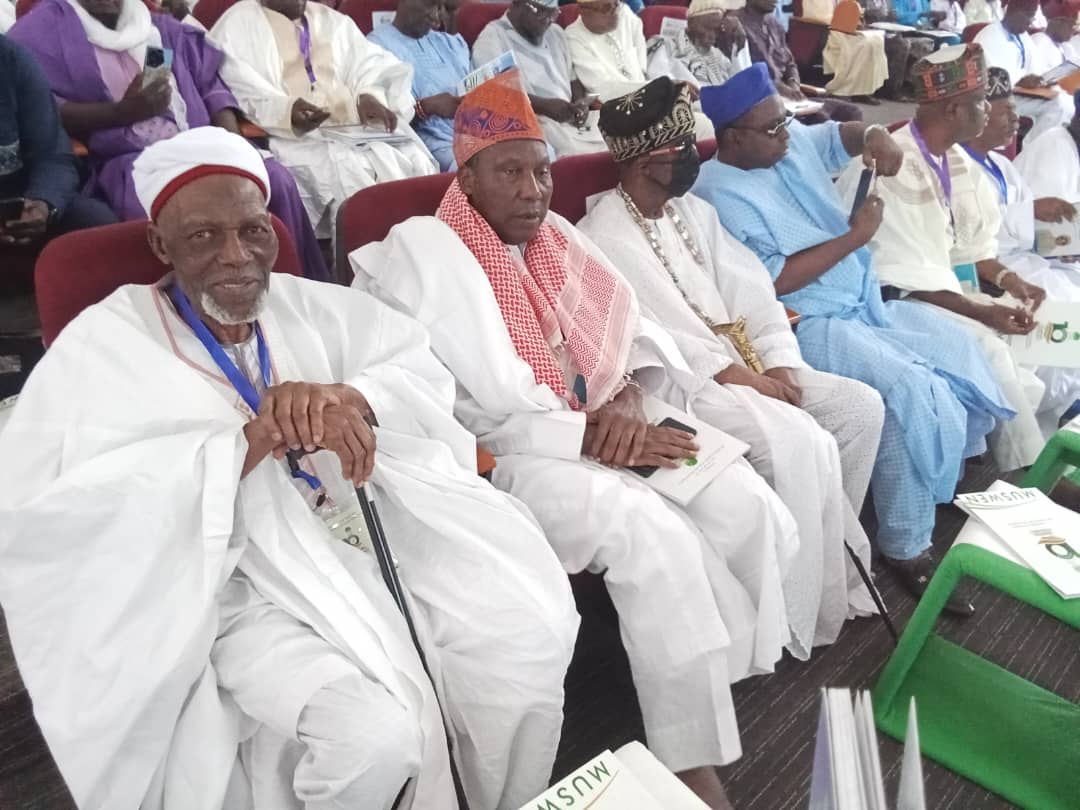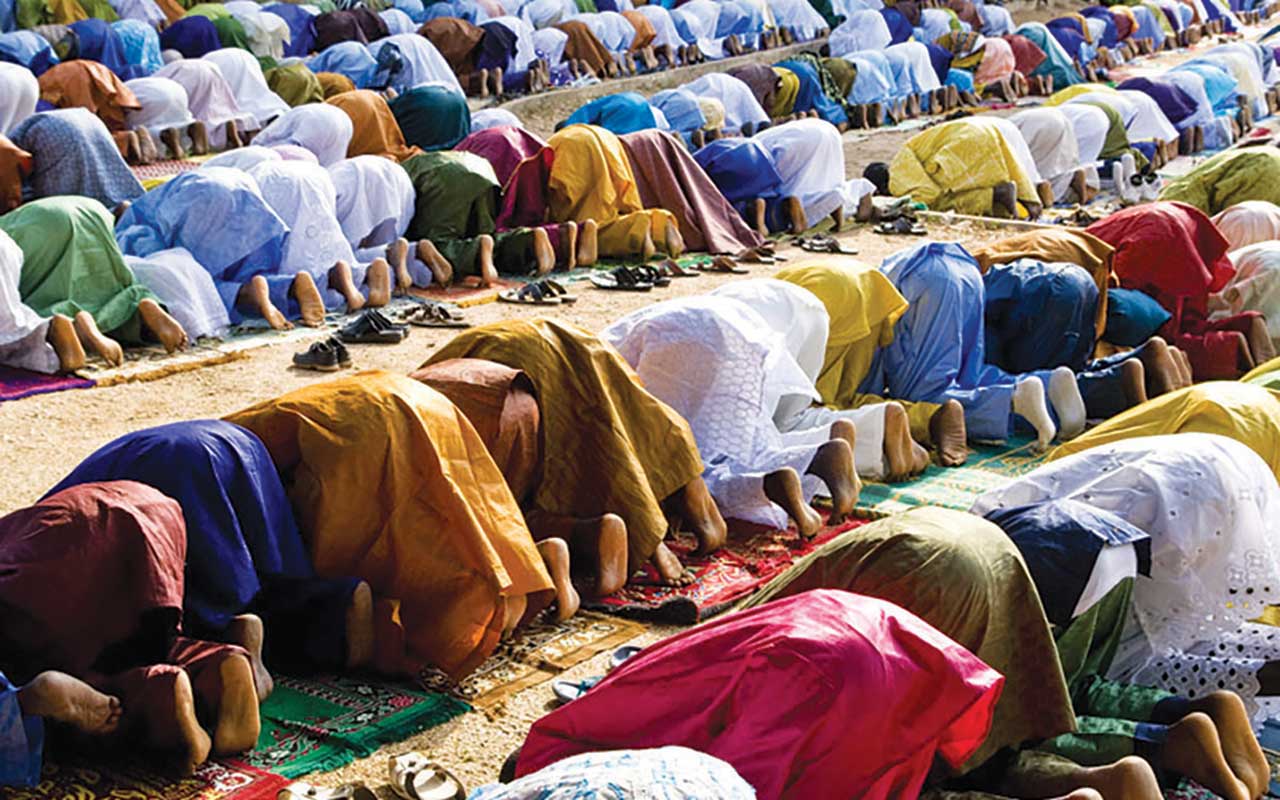“You believers are the best community ever brought forth for the good of humankind: You enjoin what is right. And you forbid what is wrong. And you believe in Allah.” (Qur’an 3V110).
The Muslim Ummah of South West Nigeria (MUSWEN) held its landmark 10th General Assembly on Sunday, November16, 2025, at the Bola Babalakin Hall in Gbongan, Osun State. Hosted by the Osun State Muslim Community, the event drew a distinguished gathering of traditional rulers, Islamic scholars, governors, public officials and members of the Muslim intelligentsia from across the country. This year’s theme, Nigeria’s Economy: Any Hope for the Masses? guided the day’s discussions, which focused on economic recovery, national unity, education reform and the strengthening of the ummah.
The President of MUSWEN, Alhaji Rasaki Oladejo, welcomed participants warmly and expressed gratitude to Allah (SWT) for preserving the lives of members to witness the tenth anniversary of the Assembly. He acknowledged President Bola Ahmed Tinubu, represented by the Minister of Marine and Blue Economy, Alhaji Isiaka Adegboyega Oyetola, and thanked him for his support. He also recognised the presence of distinguished personalities including Sultan of Sokoto, Alhaji Sa’ad Abubakar and many others. Indeed, the list of dignitaries was inexhaustible.
In his speech, Alhaji Oladejo expressed concern over the recent redesignation of Nigeria by the United States President Donald Trump as a Country of Particular Concern. He described the decision as unfortunate and rooted in misinformation, warning that such interventions, if not properly addressed, could create tension within the country. He affirmed MUSWEN’s unwavering commitment to peaceful coexistence and condemned all forms of military interference in governance.
The MUSWEN President reviewed developments in the socio-economic space, noting that the Tinubu administration had embarked on difficult but necessary reforms, including fuel subsidy removal and the unification of exchange rates. He stated that these measures had already attracted investor confidence and boosted Nigeria’s GDP. He acknowledged improvements in healthcare delivery and pension adjustments but stressed the need for deeper infrastructural investment and increased patronage of locally produced goods.
He also announced MUSWEN’s plans for 2026, which include economic empowerment initiatives across the South West, technology-based skills acquisition programmes and the establishment of new health facilities in each of the six states. He highlighted the commissioning of the Alhaja Taibat Ali Shopping Mall in Ibadan, a twelve-shop complex donated by Professor Yusuf Olaolu Ali and redesigned by MUSWEN. Funds raised during the Assembly, he noted, would support the rebuilding of MUSWEN’s property in Abuja and the development of a new headquarters in Ibadan.
Chairman of the MUSWEN Board of Trustees and principal sponsor of the Assembly, Dr Abdulrauf Wale Babalakin, SAN, delivered a compelling address centred on education and integrity. He argued that any society seeking genuine progress must anchor its development on honest leadership and the cultivation of sound values. He explained that education is not merely about erecting buildings or expanding enrolment figures, but about shaping minds, strengthening character and producing leaders who can be trusted with public responsibility.
Using his personal principles as illustration, he spoke about transparency, discipline and fairness in managing people and institutions. He noted that true educational investment must prioritise high quality teaching, moral grounding and consistency in standards. He reaffirmed his commitment to supporting MUSWEN’s long term vision that bothered on accelerating its infrastructural and capacity building projects.
The keynote address was delivered by the Executive Governor of Nasarawa State, Engineer Abdullahi Audu Sule, who examined the national economy through historical and contemporary lenses. He traced Nigeria’s economic trajectory from the Babangida and Abacha eras to the administrations of Jonathan and Tinubu, noting that the country is undergoing essential restructuring. He argued that the removal of fuel subsidy, though challenging, had strengthened federal allocations and enabled states to increase investments in infrastructure. He also highlighted Nasarawa State’s progress in financial management and the training of more than eight thousand teachers through the state’s skills acquisition programme.
Governor Sule referenced Islamic teachings to deepen his message. He cited the hadith narrated by Anas ibn Malik, which emphasises desiring for others what one desires for oneself, as well as Qur’anic verses in Surah Imran on the divine nature of authority and Surah Nisaa verse 59, which encourages obedience to leadership and resolving disagreements by returning to Allah and His Messenger. He called on Nigerians to pray for their leaders and work collectively to improve the nation.
His Eminence, the Sultan of Sokoto, Alhaji Muhammad Sa’ad Abubakar, delivered a message anchored on moral responsibility, justice and national unity. He urged leaders to act with sincerity and prioritise the welfare of citizens. He condemned banditry and terrorism and called for stronger bonds within the Muslim community. He reminded Nigerians that there is no compulsion in religion and encouraged continuous peaceful engagement to foster national stability.
Goodwill messages followed from the Governor of Niger State, Farmer Umar Muhammad Bago, and the CEO of Matrix Energy, both affirming their support for the growth and well-being of the Muslim ummah. The Osun State Governor, in his message, highlighted the state’s longstanding record of peaceful coexistence and announced the recent legal recognition of marriages conducted according to Islamic rites.
A major highlight of the Assembly was the presentation of scholarships to twelve female medical students, two from each state in the South West, under the Sultan Abubakar Female Medical Scholarship Scheme. Each student also received a laptop to support her academic work.
The Assembly ended with a special acknowledgment of Professor Muslih Tayo Yahya, the outgoing Executive Secretary of MUSWEN, whose six years of dedicated service were celebrated. His successor, Professor Wole Abbas, a respected academic from the University of Ibadan and a devoted supporter of MUSWEN’s work was unveiled during the general assembly. Curtains drew on the gathering with the business session that detailed the stewardship of the officials in the last one year.






